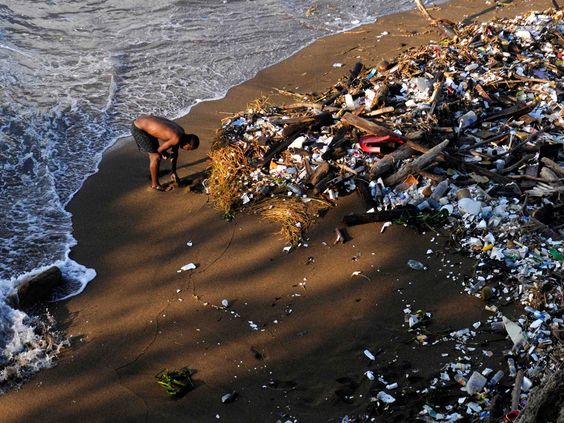India is believed to generate 25,00 tonnes of plastic waste every day. So much that plastic is entering the food chain. This can alter human hormones and cause life-threatening diseases. Thus, it is imperative for governments to step up and enforce laws to combat this crisis. In 2016 Extended Producer Responsibility (EPR) was introduced into the Plastic Waste Management Rules, 2016. Companies are now at risk of losing their manufacturing license unless they comply with the new laws. Yet with India’s volatile waste management economy, how can these laws become a reality?
Strewn across roads and riverways, branded plastic litter is now part of the scenery. People are waking up to the adverse effects of plastic on territorial and aquatic life. Pressure is now mounting on brands and manufacturers to take responsibility for the vast amounts of plastic they produce. EPR (Extended Producer Responsibility) is designed to integrate the environmental costs connected with the goods throughout their lifecycles. It encourages brands with financial incentives to create markets for reuse, buy-back or recycling of materials. Companies can also delegate this responsibility to a third-party.
Whilst in theory EPR seemingly answers core problems for governments, the implementation is far more challenging for companies. Informal waste workers are responsible for 90% of recycling that happens in developing countries. Companies are pouring out mass quantities of plastic to these areas, they are faced with trying to collect it in a broken, volatile recycling economy. Plastics For Change has been combatting this issue for three years in India. We provide a mobile platform that traces the plastic from collection to buy-back. Our platform is enabling the industry to transition to an ethically sourced stock by procuring high quality recycled plastic through socially responsible supply chains.
Phasing out Multi-layered Plastic is also part of the 2016 -2018 Plastic Waste Management Rules. But multi-layered also means multi-problems. Multi-Layered Packaging (MLP) is non-recyclable, with no alternative use, non-energy recoverable and thus a huge threat to a healthy ecosystem. Plastics For Change offers options for brands and manufacturers to make use of low-grade MLP. We can manage, audit and dispose of this complicated material. In addition, all data during the process is uploaded onto our app, ensuring new insights and for future recycling plans.
At end-of-life, EPR requires producers to create market incentives for the reuse, buy-back, or recycling of their materials. However, the informal recycling economy poses major challenges to the quality of recycled material and the traceability of buy-back. Plastics For change is improving the quality assurance process in the recycling supply chain. The transparency of our mobile platform allows our team to implement a robust quality control process. This ensures a consistent supply of high-quality material for industry partners and the platform data helps brands comply with India’s extended producer responsibility legislation.
Complying with the 2016-18 Plastic Waste Management rules is a huge challenge faced by companies- but it doens’t have to be. Adopting ethically sourced in supply chains and ensuring traceability is extremely possible and is happening at this moment! Plastics For Change makes EPR compliance and sourcing ethical plastic a reality. Get in touch today to set up a line trial and integrate EPR into your business practices.












